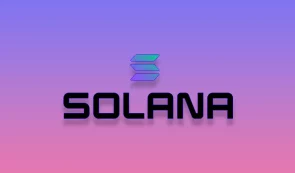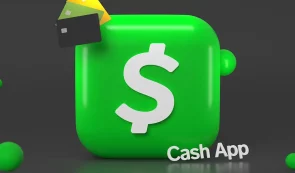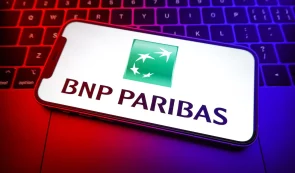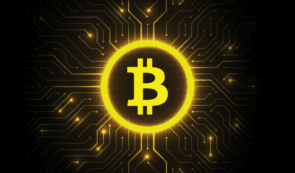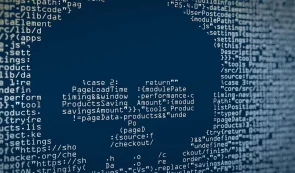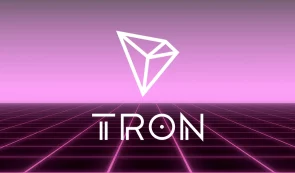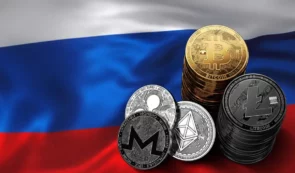DAO: Unlocking the potential of Web 3.0 in Corporate Finance
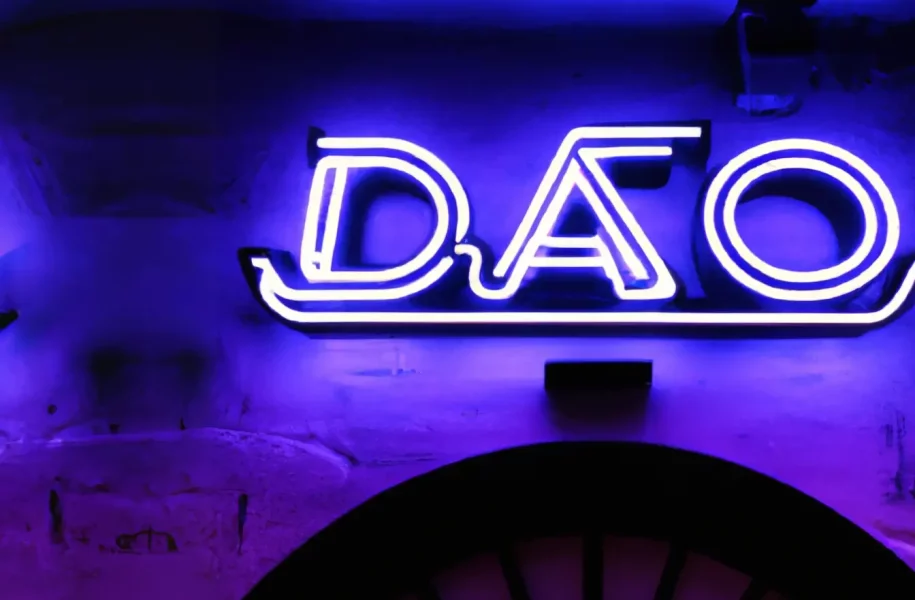
Learn about the benefits and challenges of adopting a DAO model for business. Discover how this technology can change corporate finance.
DAOs: An innovation for Corporate Finance
The terms “revolutionary” and “revolutionizing” are often overused, but when it comes to DAOs (decentralized autonomous organizations), they are fitting.
DAOs are a new innovation that has the potential to unlock the possibilities of Web 3.0. In corporate finance, DAOs serve as communities that can be formed around a central idea that each member thinks is worth investing in. The DAOs blockchain and smart contract infrastructure make this possible. Once the rules and relationships are established and encoded, the DAO autonomously runs in a streamlined fashion, governing transfers of value, keeping track of contributions, and apportioning governance rights.
The benefits of DAOs in Corporate Finance
Venture capital’s traditional approach
The traditional venture capital (VC) approach has benefits, including large investments, expertise, and access to networks. Backing the right startup can bring huge returns on investment, sometimes as much as a hundredfold. However, the traditional approach also has significant drawbacks, such as slow decision-making, demands for control, high expectations, and valuations. It also doesn’t serve small projects that must rely on larger firms, the VC funds, to succeed.
DAOs as an alternative
DAOs offer an alternative that addresses these issues. They leverage blockchain technology to access funds from multiple sources, including the ability to crowdfund retail investors with minimal amounts. DAOs enable operational efficiencies, such as faster decision-making and increased investor flexibility. They also reduce costs and establish trust levels for investors, thanks to their transparency and governance capabilities.
Constitution DAO: A successful example
In November 2021, Constitution DAO raised close to $47 million in five days to buy a rare copy of the US Constitution that was auctioned by Sotheby’s – though they were ultimately outbid by a billionaire.
This example illustrates how DAOs can democratize and spread power to more people, allowing members of a community to provide liquidity and receive a share of the spoils.
Decentralized capital and democratizing power
DAOs democratize power by enabling members of a community who see potential in a project to provide the required liquidity and receive a share of the rewards. Decentralized capital means that great ideas are no longer dependent on the wealthy but can be chosen by the wider community.
How DAOs are disrupting venture capital and resource management
The advent of blockchain technology has created a new paradigm for managing funds and resources, mainly through the emergence of decentralized autonomous organizations, or DAOs. By leveraging blockchain’s capabilities, DAOs are revolutionizing traditional business models and opening up unprecedented opportunities for investors and project creators.
Access to capital
DAOs are changing the face of venture capital, offering a more democratic and accessible model for retail investors. According to Forbes, in 2018, there were around 10 DAOs in existence. By 2020, that number had grown to nearly 200. As of 2023, the total number of DAOs tops 10,000, and the total treasury of all publicly accessible DAOs stands at $12.3 billion – a 25% increase from the previous year.
Through DAOs, retail investors can gain access to the crypto space with minimal investments, potentially as little as $1. By utilizing smart contracts on the blockchain, DAOs can securely and efficiently access funds from multiple sources, including traditional venture capitalists, angel investors, private investors, and customers. Together, these stakeholders form a collective, each member receiving tokens according to their stake. By disrupting the traditional venture capital model, DAOs transform how funds are structured and managed.
READ MORE: Bitcoin: Analyst Shares His 2023 Scenario for the Cryptocurrency
Resource management
DAOs are also leading the way in the decentralization of resource management. By leveraging blockchain technology, DAOs offer unprecedented control over resource management, whether for traditional or digital assets. With blockchain technology, resources like non-fungible tokens (NFTs), protocols, money, on-chain projects, and soon real estate can be securely and transparently managed in a decentralized manner.
The emergence of DAOs is opening up new opportunities for individuals and organizations to manage resources in a decentralized and transparent manner. Through DAOs, people can manage their NFTs and tokens and make decisions about collective investments, both on-chain, and off-chain. Some DAOs even invest in traditional assets such as real estate or gold mines.
Building trust with investors
One of the critical challenges facing traditional crowdfunding platforms is the need for more infrastructure to support an ongoing relationship between a project and its funders. DAOs are changing this by providing transparency, incentives, and governance to support a strong stakeholder relationship.
To ensure transparency, DAOs must be clear about their operations and decisions. This can be achieved through open-source software, smart contracts, and other technologies that allow stakeholders to review and verify the code underlying a DAO’s operations. Strong governance, including transparent decision-making processes, dispute-resolution mechanisms, and operational protocols for managing funds or resources, is essential.
By combining these three core elements – transparency, incentives, and governance – DAOs can build trust with their stakeholders and maximize their chances of success.
The future of DAOs
Their rapid growth clearly indicates a strong potential to disrupt traditional business models. As blockchain technology continues to evolve, DAOs will likely play an increasingly important role in managing funds and resources.
By offering a more democratic and transparent investing and resource management model, DAOs are democratizing access to capital and providing new opportunities for individuals and organizations alike. As this ecosystem continues to mature, we will likely see further innovation and disruption in the years ahead.
Advantages of DAOs for cost reduction and financial and non-financial benefits
Decentralized Autonomous Organizations offer many benefits for businesses that adopt this model. One of the main advantages is cost reduction.
Unlike traditional companies, DAOs do not require the exact overhead costs associated with traditional companies, such as a board of directors or other conventional management structures. Additionally, they do not require the exact legal and regulatory costs that traditional companies must pay.
As a result, they can help to reduce costs associated with corporate governance, making them an attractive option for businesses. Furthermore, DAOs are powered by blockchain technology, which makes them more secure and reliable than traditional companies.
In addition to financial benefits, adopting this business model can offer a unique blend of non-financial benefits. For instance, DAOs provide an opportunity to democratize decision-making. All members of the organization have equal access to information and voting power, resulting in greater engagement from employees and customers alike who feel their opinions and perspectives are considered when making decisions.
Challenges of implementing DAOs
Despite the advantages, there are also challenges associated with implementing DAOs. One of the biggest challenges is scalability. These organizations need to be able to handle large amounts of data and transactions, which requires an efficient consensus mechanism and robust protocols to ensure the integrity of transactions. Another challenge is security. The open-source nature of DAOs makes them vulnerable to attacks from malicious actors who could gain control of the network. Robust security measures need to be implemented to protect against such attacks.
In addition, trust is crucial for a DAO to work effectively. Participants must trust in its processes, decisions, and the technology behind it. This requires transparency and accountability for all participants, which may prove difficult in some contexts. Finally, the regulatory landscape for DAOs is still developing, and it may take some time for regulators to establish clear guidelines for the industry.
Conclusion
The rise of DAOs is changing the face of corporate finance. With the benefits of cost reduction, increased transparency, improved employee engagement, and faster decision-making, DAOs provide solutions and capabilities like no other structure. As the technology continues to evolve, and more projects adopt the DAO model, it’s likely that we will see continued growth and innovation in the area, accelerating further adoption. However, it’s important to keep in mind that there are challenges to overcome in order to fully realize the potential of DAOs.
READ MORE: IMF Would Like to Regulate Crypto and Avoid ban


